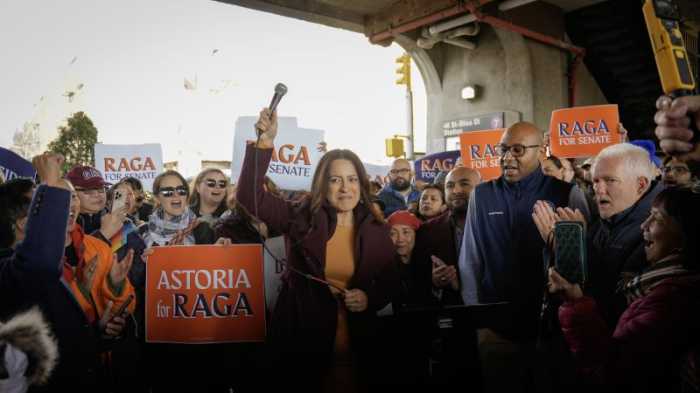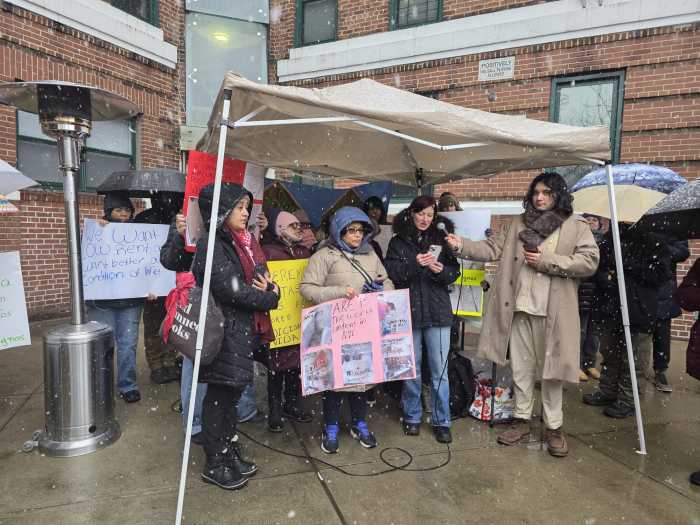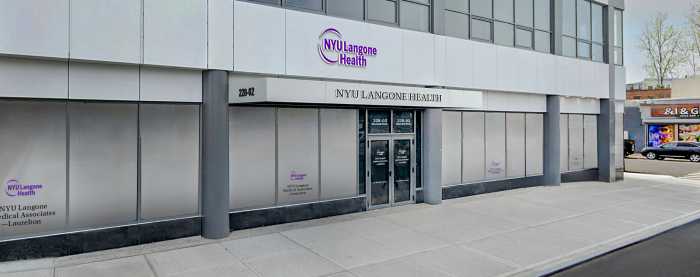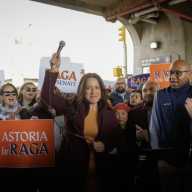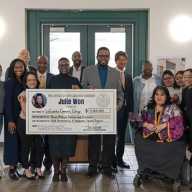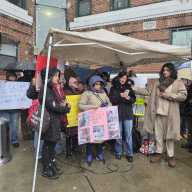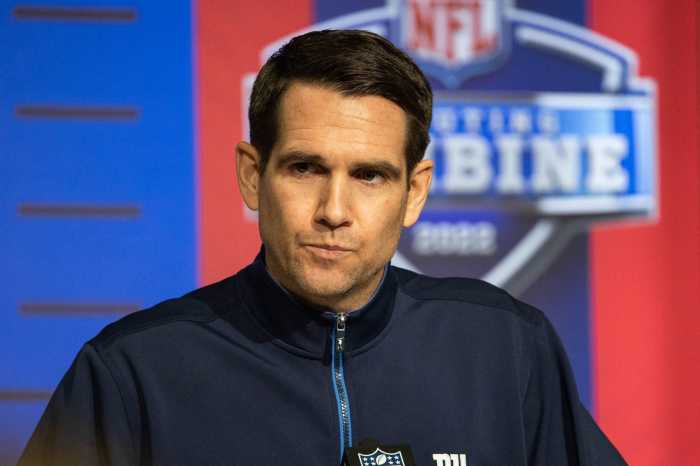Queens’ first ever Climate Expo, sponsored by Borough President Donovan Richards, launched on Wednesday, Sept. 20, at Queens Borough Hall as one of the many events scheduled for Climate Week NYC.
Over a dozen environmental organizations set up tables across the Helen Marshall Cultural Center’s atrium in Kew Gardens to share resources, spread environmental surveys and promote climate-related job opportunities – all with the goal of taking action to address the effects of climate change.
The expo was centered around an expert-led panel on Local Law 97, a law passed in 2019 with the goal of making the city carbon-neutral by 2050 through a dramatic reduction in building emissions. Starting in 2024, buildings larger than 25,000 square feet, which is approximately the size of a five-unit building, will be fined by the city for failing to comply with new standards for greenhouse gas emissions.
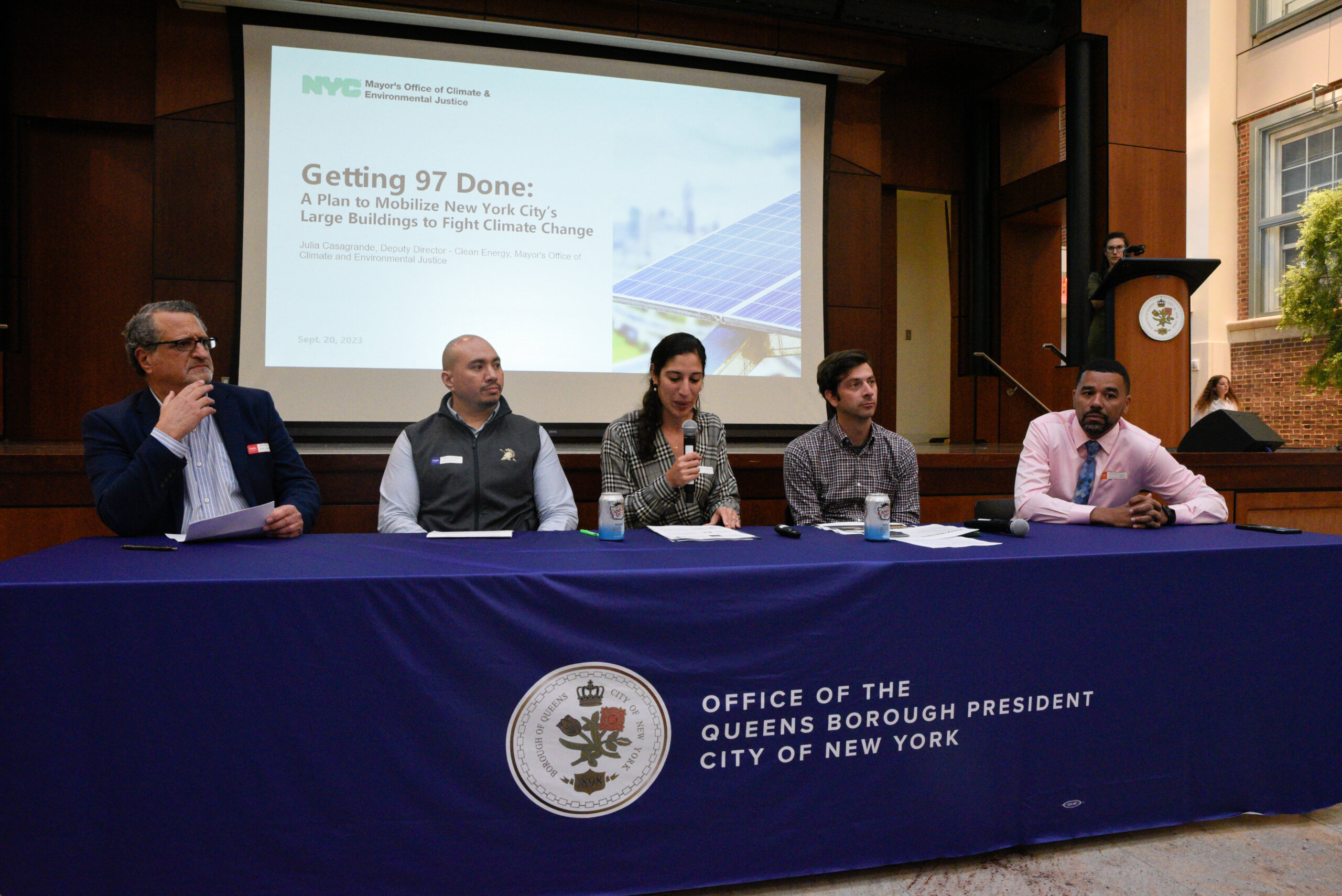
“The theme of this panel is coming up with meaningful ways to help building owners in getting into compliance with this law but also in making that environmental impact and and reduction of the carbon footprint to get the city to be carbon neutral by 2050,” said Stephen Levin, CEO of Solar One and former north Brooklyn council member, who sat on the panel. “That is achievable. That is really within our grasp.”
Buildings account for 66% of emissions in NYC, more than in other cities where transportation is the bigger polluter. The law will require approximately 50,000 buildings to reduce emissions over numerous compliance stages starting next year. While municipal buildings have been put on an accelerated timeline, houses of worship and affordable housing will receive leniency.
“We found that a lot of Queens is in compliance with the law,” Richards told QNS. “And where folks are not compliant, we’re going to work with the administration to make sure that they have every tool at their disposal to be successful in adhering to the law.”
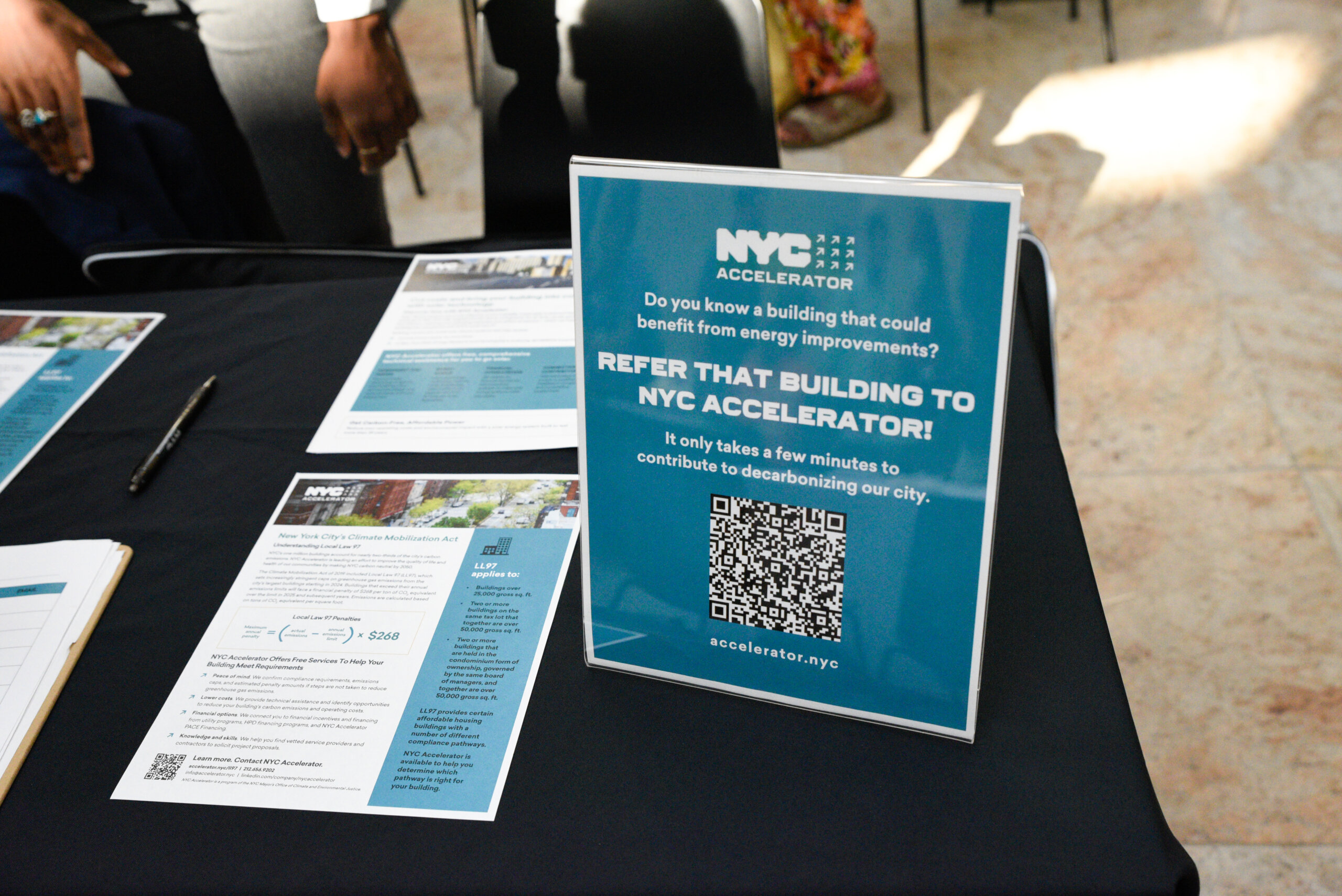
One table was set up to promote NYC Accelerator, a resource for building owners to receive free assessments and advice in determining what requirements they need to meet local energy laws. Since 2021, the Accelerator has been able to help 15,000 buildings implement at least one carbon emission reducer.
A representative encouraged tenants to report their building if they believe that it is energy inefficient so that they can reach out and offer their services. Case managers can also help building managers come up with a financing plan, share incentive options and connect them to contractors.
In 2020, Queens installed 2,064 solar projects, more than any other borough, according to Con Edison. That trend continued in 2022 with 3,500 solar projects completed, with Brooklyn trailing behind at 2,000. Queens was also the first borough to adopt compositing ahead of the city’s plan to make it mandatory in 2024.
NY Sun Works, a nonprofit bringing hydroponic labs to schools across the city, had a table set up to demonstrate how soil is not necessary to grow an array of produce. On average hydroponics also uses ten times less water, because in that system water is captured and reused.
“The thing about this is it can happen anywhere on our planet, as long as you have access to your energy,” a representative for NY Sun Works told QNS. “The benefits of hydroponics is less water, less disease and less land.”
Richards says his goal before leaving office is to build out a hydroponics lab in every school in Queens – a climate initiative he is most excited about.
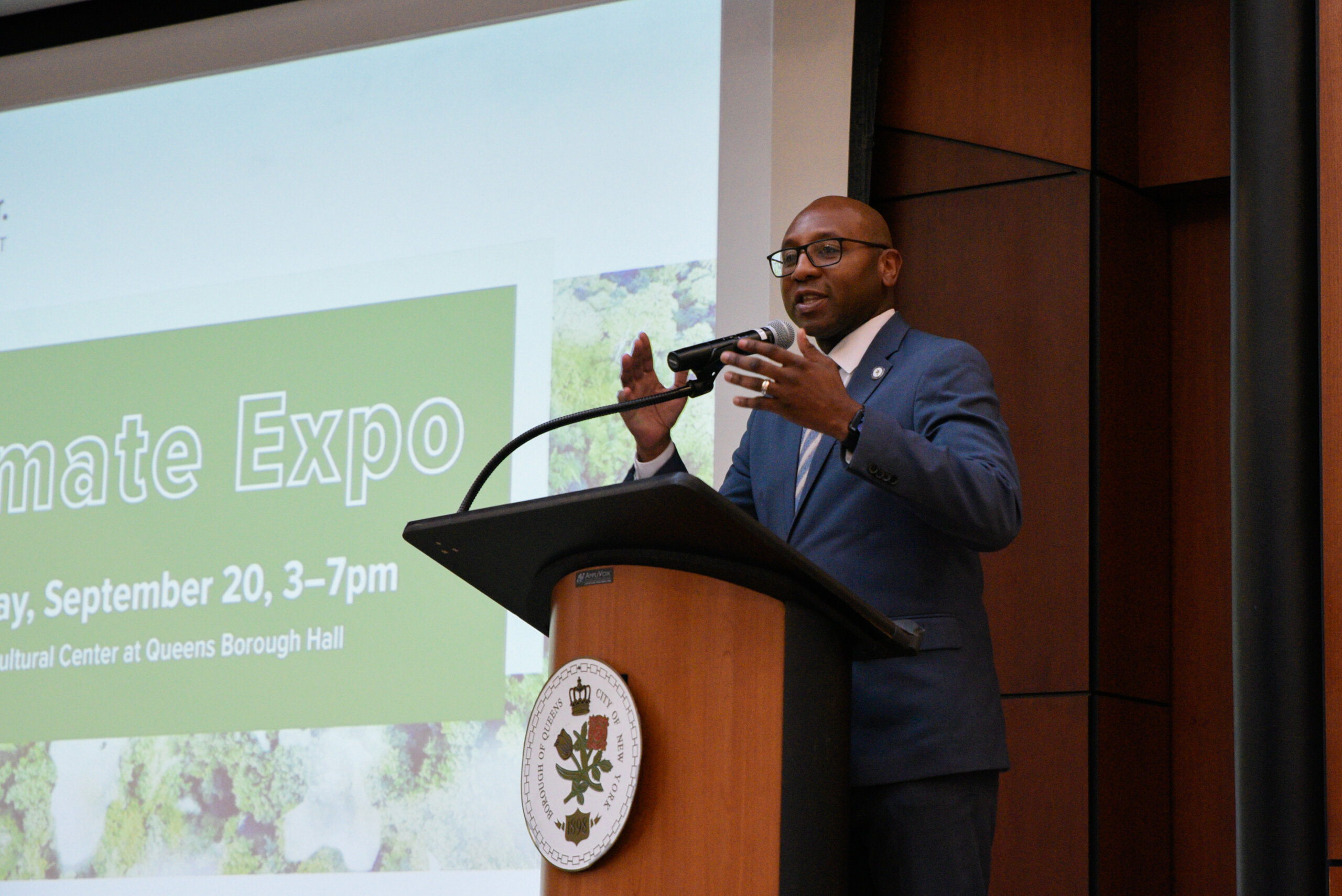
The NYC Department of Sanitation also handed out guides on how to start composting outdoors, or indoors with a worm bin if you lack the space.
Rebuild by Design, an organization focused on addressing storm surges, subsequent flooding and increasing social resilience, was on site to spread awareness. They promoted their Northern Queens Climate Adoption Survey which asks residents and business owners to share their own experiences with climate change.
Another climate initiative, the electrification of school buses across the city, was promoted by The New York League of Conservation Voters, a statewide organization that focuses on a range of sustainability issues. They also pushed a petition in opposition to the Mayor’s stance to allocate just one percent of the city’s budget to its 1,700 parks.
“And we’re not talking about Central Park,” said Juan Torres, a community organizer for NYLCV. “I see public parks that are not in the greatest condition. Trees are dying, there’s a lot of garbage around.”
So far during his tenure, Richards has formally recognized the Solid Waste Advisory Board of Queens, a group of representatives that advise him on waste, recycling and resiliency. In the 2023 Fiscal Year, he also invested $100,000 to plant trees in neighborhoods that are more vulnerable to heat waves.
“It is an immense amount of work, but we’re in a state of a state of emergency,” Richards told QNS on the action that needs to be taken to address climate change.


